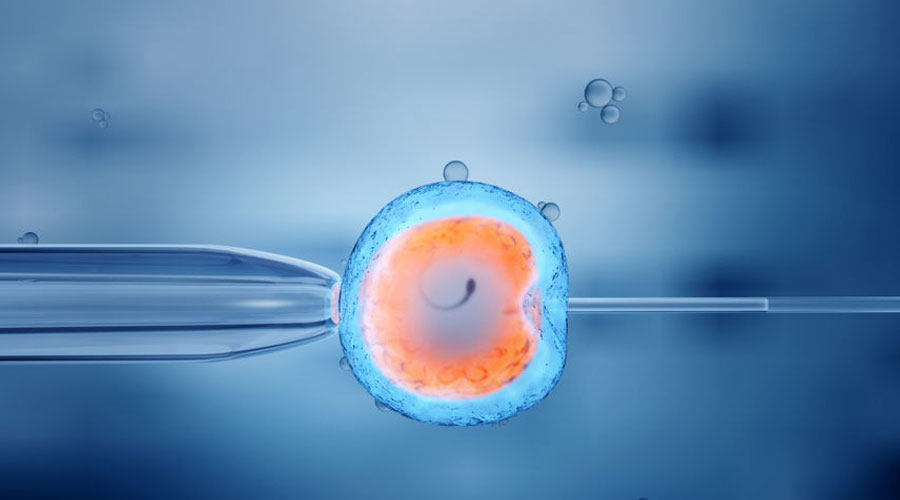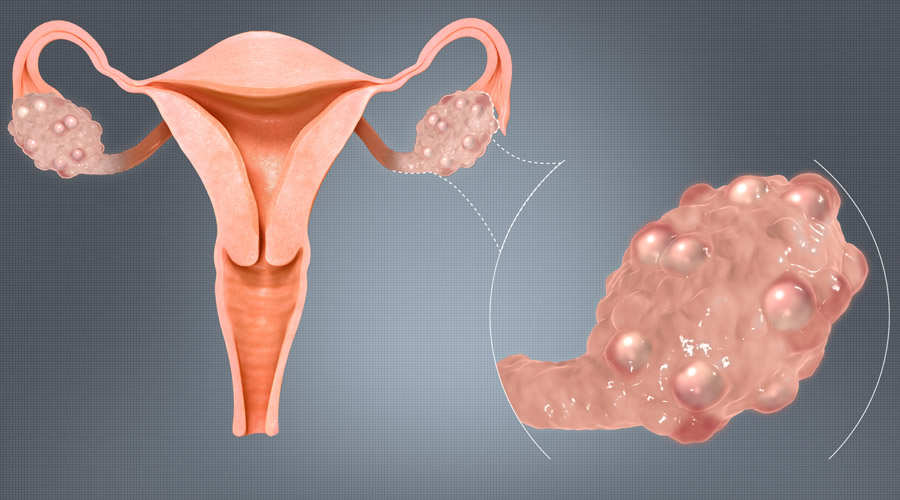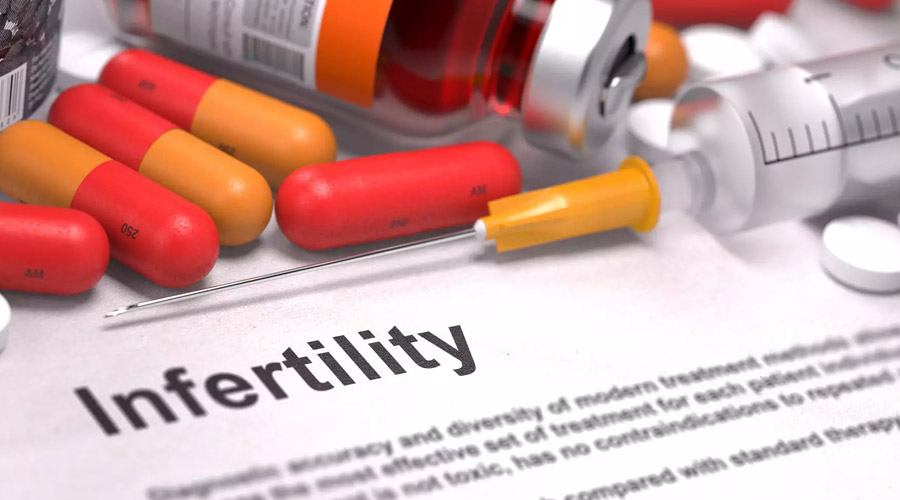Female infertility is a common problem that affects millions of women’s health worldwide. There is no single answer to treating female infertility, as the best approach for each woman will vary based on her unique factors and situation.
However, several common treatments can be helpful for many women’s health. Some of the most common treatments include fertility treatments such as in-vitro fertilization (IVF), using donor sperm, or using assisted reproductive technology (ART).
Table of Contents
What is female infertility?

Female infertility is a condition in which a woman cannot conceive a child. There are many causes of female infertility, but the most common is problems with the ovaries.
Other causes of female infertility include:
Problems with the uterus (such as an abnormal shape or size), difficulty getting pregnant after trying for a long time, blockages in the Fallopian tubes, and problems with sperm. Many women also have difficulty getting pregnant because of genetic factors.
What causes female infertility?

Infertility is a condition in which a couple cannot conceive a child. There are many causes of infertility, but the most common are problems with the male or female reproductive system. Some common problems that can cause infertility include:
Problems with the male reproductive system
Problems with the vas deferens, epididymis, spermatozoa, and testicles can all lead to infertility. These problems can be caused by tumors, blockages, surgery, or infections.
Problems with the female reproductive system
Weak ovaries or fallopian tubes can lead to difficulty getting pregnant. Other issues that can cause infertility include endometriosis, polycystic ovary syndrome (PCOS), and cervical cancer.
How diagnose female infertility?

Infertility is a common problem in women and can be caused by various factors. Your doctor will take a detailed medical history and perform various tests to diagnose female infertility.
There are a few ways to diagnose female infertility. Many women will go through several tests before they identify the issue, but some key tests include:
A pelvic exam
This is the most common way to screen for fertility issues. During the exam, your doctor will check for any abnormalities in your reproductive system, including your ovaries, fallopian tubes and uterus.
Blood tests 2qa
If you’re having difficulties getting pregnant, your doctor may order blood tests to check hormones and other factors related to fertility. These tests can also help rule out other health problems.
Ultrasound exams
An ultrasound is often used to look at the inside of your uterus and ovaries. This procedure can help identify problems with either organ, such as an infection or a tumor.
How is female infertility treated?
Female infertility is a medical condition that affects women. It can be caused by problems with the female reproductive system like the fallopian tubes, including trouble getting pregnant, problems with the baby after it is born, or infertility due to a problem with the male reproductive system.
There are treatments for female infertility, and many women have successful pregnancies after being treated. Treatment for female infertility may include medical treatments such as doctors prescribing hormone therapy or fertility drugs, surgical procedures such as fertility treatments, or assisted reproductive technologies (ART).
There is no perfect way to treat female infertility, and different patients may require different approaches like tracking their menstrual cycle, which could greatly affect fertility.
Medication treatments for female infertility
Infertility is a common problem that affects both men and women. In women, infertility can be caused by problems with the ovaries or uterus. Female infertility starts showing through an irregular menstrual cycle most of the time.
Many different treatments are available for female infertility, especially menstrual cycle, including medication treatments. Some common medication treatments used to treat female infertility include:
Gonadotropins and Human Chorionic Gonadotropin (hCG)
Gonadotropins and Human Chorionic Gonadotropin (hCG) are medication treatments for female infertility. hCG is a hormone produced by the placenta after implantation of the fertilized egg into the uterus.
It is sometimes used to monitor fertility in women. Gonadotropins are hormones that control the production of eggs in women. There are three types of gonadotropins: follicle-stimulating hormone (FSH), luteinizing hormone (LH), and estradiol.
FSH stimulates the growth of ovarian follicles, LH triggers ovulation, and estradiol helps maintain the uterine lining during pregnancy.
Letrozole
Letrozole is a medication that is effective in improving female fertility. Letrozole works by restoring the natural production of estrogen in the body.
Estrogen plays an important role in female fertility and is necessary for ovulation. When estrogen levels are low, it can be difficult for a woman to become pregnant.
Many women who use letrozole find that it effectively restores their fertility.
However, letrozole has some side effects that should be monitored closely by patients. These side effects may include weight gain, breast tenderness, and fluid retention.
Bromocriptine or Cabergoline
Bromocriptine or Cabergoline are two medications that are commonly used to treat female infertility. Bromocriptine is a dopamine agonist, while Cabergoline is a potassium channel blocker.
Both medications can improve fertility in women who have difficulty getting pregnant due to problems with their ovaries. Bromocriptine and Cabergoline have side effects, but they are generally less severe than those caused by other types of infertility treatments.
Clomiphene or Clomiphene Citrate
Clomiphene or Clomiphene Citrate is a medication treatment for female infertility. This medication is prescribed to help women who have difficulty getting pregnant by increasing the chances of becoming pregnant.
Clomiphene or Clomiphene Citrate is taken by mouth and works by helping to increase the number of eggs that are available for fertilization. Side effects may include nausea, headaches, and breast tenderness.
Surgical treatments for female infertility
There are many surgical treatments for female infertility, but the most common are assisted reproductive technologies (ART), such as in-vitro fertilization (IVF).
Medication treatments include medications that help increase the number of eggs available for fertilization and stimulate ovulation.
Surgical treatments might include surgery to remove a problem with the uterus or Fallopian tubes or surgery to remove one or more ovarian cysts.
How common is female infertility?

There is no one answer to this question, as infertility in women can vary greatly depending on several factors, including age, ethnicity, lifestyle habits and medical history.
However, according to the Centers for Disease Control and Prevention (CDC), infertility affects upwards of 15% of women in their lifetime.
And while female infertility is not always an easy topic to talk about or process, it’s important to remember that many possible solutions are available.
When should I see my doctor about female infertility?
There is no definitive answer, as the answer will depend on several factors, including your age, health history and the specific symptoms you are experiencing.
However, some general guidelines include seeking medical help if you have difficulty getting pregnant or have repeated miscarriages.
Additionally, it is worth considering seeing a doctor if your periods have changed or if you experience any unusual pain or cramps.
Inference
There are many different ways to treat female infertility. Some treatments are more invasive than others, but all have the same goal:
To help the woman become pregnant. If you are experiencing infertility, talk to your doctor about your options. There is a treatment out there that will work for you.
FAQ
What is the treatment of female infertility?
The best infertility treatment will vary depending on the individual woman’s situation and health history. However, some common treatments for female infertility include: fertility drugs, assisted reproductive technologies (ART), and surgery.
Fertility drugs are usually the first line of treatment for women struggling to conceive. They work by helping to increase the number of eggs produced by the woman’s ovaries. Some fertility drugs can also help to improve other aspects of a woman’s health, such as her overall mood and libido.
ART is often a necessary step in trying to conceive. This involves using sperm from a donor to fertilize an egg outside of the woman’s body.
What is the most common treatment for infertility?
Infertility is a common problem, affecting 15% of couples trying to conceive. Many treatments are available, but the most common is in-vitro fertilization (IVF).
IVF involves removing eggs from a woman and fertilizing them with sperm outside the body. This can be done in several ways: using a donor egg, using frozen eggs, or using embryos that have been created through assisted reproductive technology (ART).
The success rate for IVF varies depending on the method used, but it is usually around 30%. If you are experiencing infertility, your doctor may recommend one or more treatments.
What causes female infertility?
Unfortunately, there isn’t one definitive answer to what causes female infertility. In general, however, several factors can contribute to difficulty getting pregnant – including problems with ovulation (the release of an egg from the ovary), difficulties with conception due to low sperm count, poor quality sperm or excessive cervical mucus, fallopian tube, and abnormalities in the reproductive system itself.
What are the signs of infertility in women?
Several signs may indicate infertility in women. If you are experiencing any of these symptoms, it is important to seek medical help. Some common signs of infertility include:
Difficulty getting pregnant, irregular menstrual periods, low sperm count, pelvic pain, problems with the uterus and fallopian tubes, and trouble conceiving.
If you suspect that you might have fertility issues, it is important to get checked out by a doctor. Many treatments are available for infertility, and if the problem is treated early on, it can often be resolved.
If you do not have any obvious signs of fertility problems but think that you might be struggling to conceive, it is always best to talk with your doctor about your options. You can also check out the Society for Reproductive Medicine for more information about infertility.
What are the types of female infertility?
There are a variety of ways in which women can experience infertility. Some women have difficulty getting pregnant due to a primary ovarian insufficiency or trouble with the Fallopian tube.
Other women may have difficulty getting pregnant because of abnormalities in their husbands’ sperm or because they don’t produce enough eggs.
There are many different types of infertility, and each woman’s experience with it is unique. If you’re struggling to conceive, it’s important to talk to your doctor about all of your options for treatment.
